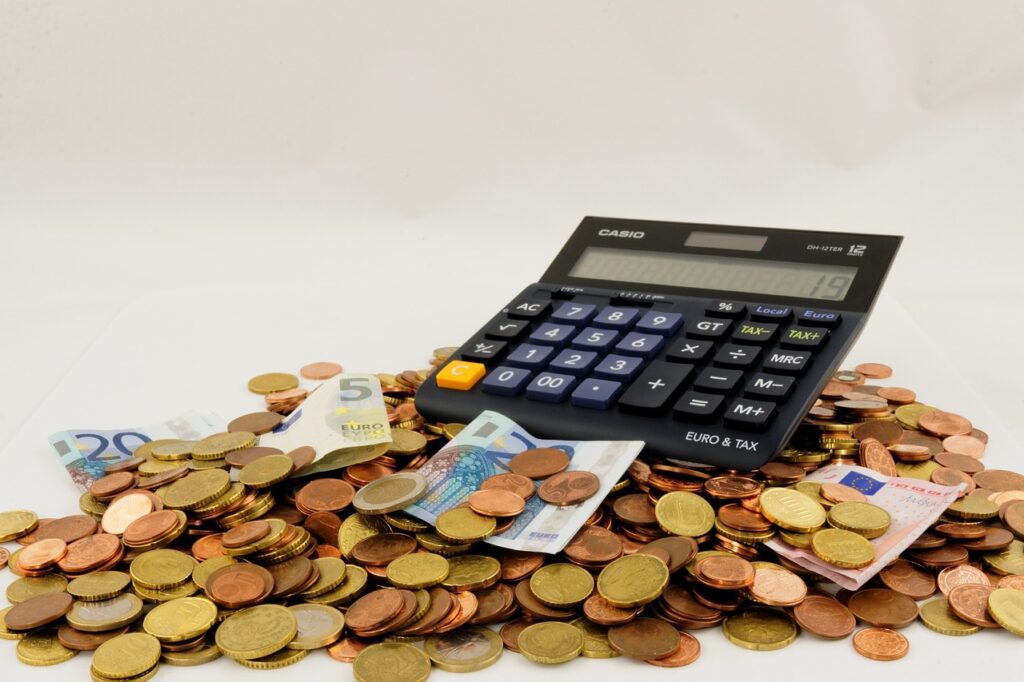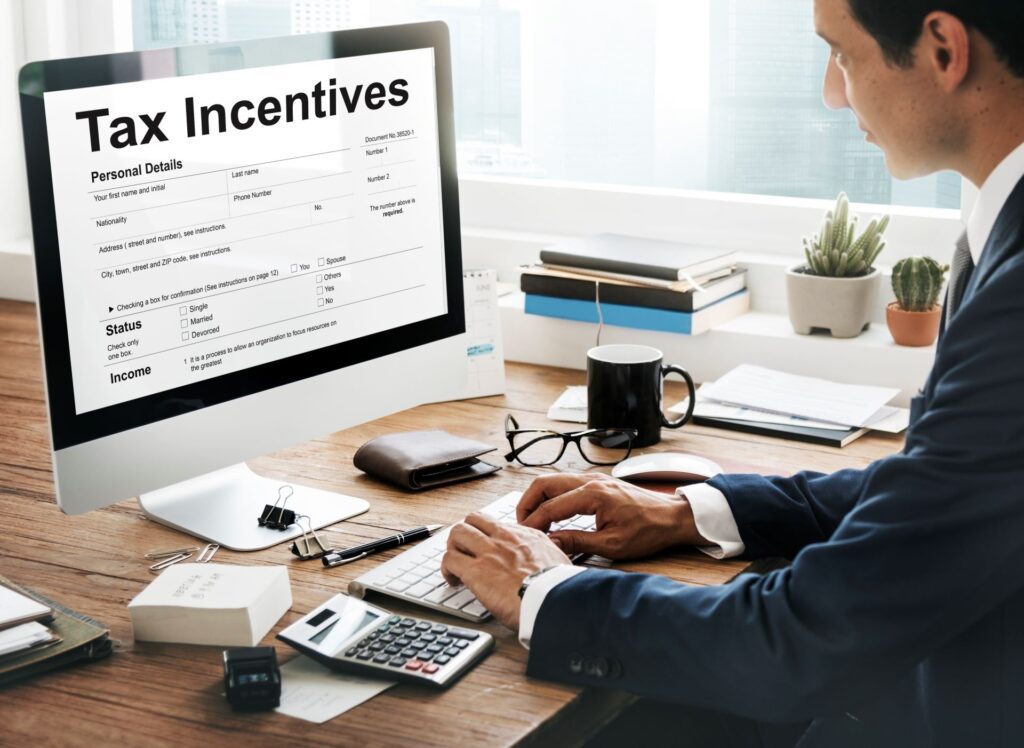Investing in real estate in Thailand is an enticing option for foreign investors, thanks to the country’s vibrant tourism industry, expanding economy, and diverse property market. But beyond the obvious allure of owning a villa in a tropical paradise, there are numerous tax benefits that make investing here even more appealing. These tax advantages provide investors with opportunities to maximize their returns and reduce overall costs, making Thailand a competitive destination for both personal and commercial property investments.
Whether you’re eyeing a holiday home, a long-term rental property, or a piece of commercial real estate, understanding these tax benefits can have a significant impact on your financial outcome. From personal income tax exemptions to favorable capital gains tax conditions, Thailand offers a range of incentives that can enhance your investment strategy. In this article, we’ll explore these tax benefits in detail, along with legal considerations to keep in mind and expert tips to optimize your investment.
No Capital Gains Tax on Property Sales
One of the most attractive tax benefits for real estate investors in Thailand is the absence of capital gains tax on property sales. In many countries, profits generated from selling property are subject to capital gains tax, reducing the overall profit from the transaction. In Thailand, however, there is no capital gains tax for individuals selling property, which allows investors to retain a larger portion of their earnings.
This benefit can be a game-changer for investors looking to profit from the appreciation of real estate over time. Whether you’re selling a villa, a commercial property, or a rental unit, the absence of capital gains tax means that any profit you make from the sale can go straight into your pocket, making it one of the key financial incentives for investing in Thai real estate.
Special Considerations for Foreigners
While the no capital gains tax benefit applies equally to both Thai nationals and foreign investors, it’s important for foreign buyers to be aware of certain regulations when purchasing property in Thailand. For instance, foreigners can only own condominiums outright, provided that foreign ownership in the building does not exceed 49%.
However, foreign investors are generally prohibited from owning land directly. That said, there are legal alternatives that allow for investment in land-based properties, such as long-term leases, which typically last for 30 years, or setting up a Thai company to hold the land title. These options enable foreign investors to capitalize on villa investments or other land-based real estate while benefiting from Thailand’s favorable tax environment.
By understanding the legal landscape and leveraging the right investment structures, foreigners can still take advantage of Thailand’s no capital gains tax policy and enjoy profitable real estate ventures in popular areas like Koh Samui or Phuket.

Low Property Taxes and Fees
Another key advantage of investing in real estate in Thailand is the low property taxes and fees, which make the country an appealing destination for property investors. Unlike in many countries where high property taxes can significantly cut into your returns, Thailand’s tax system is designed to be investor-friendly, helping you preserve your profits over time.
Property Transfer Fee
When you purchase a property in Thailand, one of the primary costs you’ll encounter is the property transfer fee. This is a one-time fee charged at 2% of the appraised value of the property. While this fee could seem substantial, it is often split between the buyer and the seller, depending on the terms agreed upon during the transaction.
This transfer fee is notably lower compared to many other real estate markets, making it an attractive option for investors who want to keep transaction costs to a minimum. The fee structure also ensures that investors are not burdened with excessive expenses when acquiring property in popular regions like Koh Samui or Bangkok, where the real estate market is booming.
Stamp Duty and Specific Business Tax
Another cost to consider when investing in Thai real estate is stamp duty, which is charged at 0.5% of the property’s appraised or selling price, whichever is higher. However, stamp duty is only applicable if the seller is not subject to the specific business tax (SBT).
The specific business tax is set at 3.3% of the property’s value and is typically applied if the seller sells the property within five years of acquisition. This tax is designed to discourage quick turnovers of property, particularly for speculative investors. If the property has been held for more than five years, the seller is exempt from this tax and only needs to pay the lower stamp duty. This rule incentivizes long-term property investment, allowing for better financial planning and higher returns for those who hold onto their properties for extended periods.
By being aware of these taxes and fees, investors can make informed decisions about when to sell and how to structure their deals to maximize profits while minimizing tax liabilities.
Deductions on Rental Income
For real estate investors in Thailand, renting out property can be a lucrative way to generate passive income. However, rental income is subject to taxation. The good news is that the Thai tax system allows for deductions on rental income, which help to reduce the overall tax burden. These deductions make property investment even more attractive by allowing investors to offset certain expenses associated with maintaining and managing their properties.
Deduction for Maintenance and Repair Costs
One of the most significant deductions available to property owners is for maintenance and repair costs. Keeping a property in good condition is essential for attracting tenants, and the Thai government allows investors to deduct these expenses from their taxable income. This includes routine repairs such as fixing leaks, repainting, or upgrading essential systems like air conditioning and plumbing.
For investors managing luxury villas or commercial properties, maintenance costs can add up quickly. Being able to deduct these expenses helps investors maintain profitability while ensuring their properties stay in excellent condition for renters. This deduction also covers costs related to property management services, which can be essential for long-distance or absentee owners who need help keeping their property running smoothly.
Depreciation Deductions
In addition to maintenance and repair costs, property owners in Thailand can also benefit from depreciation deductions. Buildings and structures naturally wear down over time, and the Thai tax system allows investors to deduct this loss in value over a period of time. The depreciation period in Thailand is set at 27.5 years, meaning investors can spread out the cost of the property over nearly three decades, reducing their taxable income each year.
By claiming depreciation on a rental property, owners can significantly lower the amount of tax they owe on rental income, making the investment more profitable in the long term. Depreciation is a powerful tool for real estate investors, as it reduces the effective tax rate on rental income, improving overall cash flow and helping to offset other costs.
Both maintenance deductions and depreciation ensure that rental property owners can keep more of their earnings, making Thailand’s real estate market particularly appealing for long-term investment strategies.

Personal Income Tax Exemptions
Thailand provides attractive personal income tax exemptions for real estate investors, particularly those earning income from long-term rental properties. While income from renting out property is subject to taxation under Thailand’s personal income tax system, several deductions and allowances can significantly reduce the taxable amount, making real estate investments even more appealing for both Thai nationals and foreigners.
Allowable Deductions for Individuals
One of the primary benefits of Thailand’s tax system is the availability of allowable deductions for individual taxpayers. Investors can apply deductions related to various personal expenses, including allowances for dependents, life insurance premiums, and retirement savings contributions. These deductions help lower the investor’s overall taxable income, which reduces the amount of tax owed on rental earnings or profits from property sales.
For instance, an investor who supports dependents or pays into a retirement savings plan can claim these expenses as deductions, further lowering their taxable income. This system incentivizes long-term investments, particularly for individuals who are looking to build a profitable rental portfolio while minimizing their tax liabilities.
Tax-Free Thresholds
Thailand also offers a tax-free threshold for personal income, meaning that any individual earning less than a certain amount annually is exempt from paying income tax. This threshold provides considerable tax relief, especially for small-scale investors or those whose rental income is relatively modest.
As of 2023, the tax-free threshold is set at 150,000 THB per year. This allows individuals who earn less than this amount from rental income or other sources to avoid paying personal income tax. For investors with lower rental yields or those just starting to rent out their properties, this threshold helps maximize profits by ensuring they pay little to no tax on their earnings.
Corporate Tax Benefits for Real Estate Investors
For larger-scale investors or those seeking to invest through a Thai company, there are notable corporate tax benefits available. Establishing a Thai company to hold and manage real estate investments offers additional tax planning advantages, particularly for those focused on commercial real estate or managing multiple rental properties. These benefits make investing through a corporate structure an appealing option for foreign investors and large-scale operations.
Lower Corporate Tax Rates
In Thailand, companies are subject to a corporate income tax rate of 20%. However, small and medium-sized enterprises (SMEs) may benefit from reduced tax rates, especially during their initial years of operation. For foreign investors, forming a Thai company to manage real estate assets can create significant tax savings and offer greater operational flexibility.
This corporate structure is especially advantageous if the company generates additional income from other business activities beyond real estate. By investing through a company, investors can take advantage of tax deductions, reinvestment opportunities, and operational efficiencies that wouldn’t be available if investing solely as an individual.
Dividend Tax Exemptions
Another key corporate tax advantage in Thailand is the potential for dividend tax exemptions. Profits generated by a Thai company and distributed to shareholders can qualify for tax-free dividends, provided the company meets specific criteria set by Thai law. This is particularly beneficial for investors looking to reinvest their earnings or distribute profits without facing additional tax liabilities.
Dividend tax exemptions, combined with lower corporate tax rates, allow real estate investors to maximize returns from their investments while optimizing tax efficiency. This structure can be especially useful for those investing in large-scale developments or multiple rental properties, ensuring that profits are distributed in the most tax-efficient manner possible.
Tax Treaties and International Considerations
Thailand has established a network of no double taxation treaties that provide significant benefits to foreign investors. These agreements are designed to prevent the same income from being taxed in both Thailand and the investor’s home country. Understanding and leveraging these treaties can help foreign real estate investors reduce their overall tax burden and increase their net returns. It is essential for investors to consult with tax professionals to fully understand the impact of these treaties and optimize their tax liabilities when investing in Thailand.
Double Taxation Agreements (DTAs)
Thailand has signed Double Taxation Agreements (DTAs) with over 60 countries, providing an important advantage to international investors. These agreements ensure that income earned from real estate investments in Thailand is not taxed again in the investor’s home country. DTAs can reduce or eliminate the need to pay double taxes on rental income, capital gains, or dividends generated from property investments.
This tax benefit is especially useful for foreign investors looking to minimize their global tax burden while benefiting from Thailand’s thriving property market. Investors should explore the specific provisions of the DTA between Thailand and their home country, as it may provide further tax exemptions or reduced tax rates on certain types of income. Working with an experienced tax advisor familiar with both Thai tax law and international taxation can help investors navigate these agreements effectively and ensure they maximize their returns without unnecessary tax penalties.

Enhancing Your Real Estate Investment with Heveatecture
Investing in real estate in Thailand, particularly in Koh Samui, requires a deep understanding of both the market and the specific demands of tropical living. This is where Heveatecture comes in, offering expert guidance to help you maximize your investment’s potential while ensuring that your property meets the highest standards in design, sustainability, and functionality.
Designing for Long-Term Value
At Heveatecture, we don’t just focus on creating aesthetically pleasing villas; we emphasize designs that enhance the long-term value of your property. Whether you’re investing in a luxury villa for personal use or as a rental property, our team is dedicated to making sure your investment yields the highest returns. By using sustainable building materials, incorporating natural ventilation systems, and designing spaces that blend indoor and outdoor living, we ensure that your villa will not only withstand the tropical climate but also attract renters and buyers alike.
Custom Solutions for Property Investors
Every investor has unique goals, and Heveatecture tailors its approach to meet those specific needs. We work closely with our clients to understand their objectives, whether it’s creating a rental property designed to generate steady income or building a personal retreat that can be a long-term asset. Our expertise in tropical architecture and attention to detail means that we can help you navigate the complexities of building and maintaining a property in Koh Samui, ensuring that your real estate investment is both financially and aesthetically rewarding.
Through Heveatecture, you gain not only a beautifully designed property but also the strategic insight needed to enhance your real estate portfolio and capitalize on Thailand’s unique tax benefits and investment opportunities.
Conclusion
In conclusion, investing in real estate in Thailand offers numerous tax benefits that can significantly enhance the profitability of your investment. From the absence of capital gains tax on property sales to low property taxes and the availability of rental income deductions, Thailand provides a favorable tax environment for both local and international investors. Whether you’re a small-scale property owner or a large corporate investor, understanding the available tax incentives, such as personal income tax exemptions and corporate tax advantages, is essential for maximizing your financial gains.
Additionally, Thailand’s Double Taxation Agreements (DTAs) with over 60 countries ensure that foreign investors can avoid being taxed twice on the same income, further increasing the appeal of the Thai property market. To fully take advantage of these benefits, it’s crucial to consult with experienced tax advisors who understand the intricacies of Thai and international tax laws. By doing so, you can optimize your investment strategy, protect your returns, and enjoy the long-term financial benefits of real estate investment in Thailand.

FAQs
One of the major advantages of investing in Thai real estate is that there is no capital gains tax on property sales for individuals. This is particularly attractive for investors seeking to maximize their profits when selling their property. Unlike many other countries where property sales can be heavily taxed, Thailand’s exemption means that you keep more of your profits. This tax relief applies to both Thai nationals and foreigners, making it an essential benefit for those looking to invest in real estate.
The property transfer fee is a one-time fee required when ownership of a property is transferred. In Thailand, this fee amounts to 2% of the appraised value of the property. Usually, this cost is shared between the buyer and seller, depending on their agreement. The transfer fee ensures the legal transfer of ownership and registration with the land office. For investors, it’s important to factor this cost into the overall budget when purchasing real estate.
Yes, if you own a rental property in Thailand, you can deduct certain expenses to reduce your taxable income. These expenses include maintenance costs, repair costs, and property management fees. Additionally, utilities and services directly related to maintaining the property’s rentable condition are also deductible. These deductions are crucial for property owners as they significantly lower the taxable amount, improving the overall profitability of the investment. These deductions apply to both individual owners and corporate entities.
Depreciation is one of the key tax benefits available to real estate investors in Thailand. Property owners can depreciate the value of their buildings over a period of 27.5 years, effectively spreading out the tax-deductible value over time. This reduces the taxable rental income, meaning the owner will pay less in taxes each year. By utilizing depreciation deductions, property owners can enhance the long-term profitability of their investment, especially if they plan to hold the property for an extended period.
No, foreigners are subject to the same property taxes as Thai nationals. However, foreigners must comply with property ownership regulations, especially regarding land ownership. Foreigners can legally own condominiums outright, but land ownership is more restricted. Foreign investors often use alternative structures like long-term leases or Thai companies to hold land or villas. Nevertheless, the tax treatment for foreign investors remains largely the same as for locals, ensuring a fair and consistent tax framework.
Yes, Thailand offers several personal income tax exemptions. These include allowances for dependents, life insurance premiums, and retirement savings. Furthermore, the country has a tax-free threshold that benefits small-scale investors or those with modest rental income. As of 2023, individuals earning less than 150,000 THB annually are exempt from paying income tax, providing extra relief for small investors. These exemptions help ensure that investors can keep more of their rental income and minimize their overall tax liability.
Yes, many foreign investors choose to set up Thai companies to purchase and hold real estate in Thailand. This approach provides flexibility, especially for land investments, which are restricted for foreign individuals. By setting up a Thai company, investors can access additional corporate tax benefits and structure their real estate portfolios more efficiently. Thai companies also offer the benefit of corporate tax rates and dividend distribution, which can be more tax-efficient than personal ownership in some cases.
For companies operating in Thailand, the standard corporate income tax rate is 20%. However, small and medium-sized enterprises (SMEs) may benefit from reduced rates, particularly during their initial years of operation. For investors holding multiple properties or investing in commercial real estate, owning through a Thai company allows for tax planning opportunities. Foreign investors should consult a tax advisor to ensure they fully understand the implications of setting up a company for property investment.
Yes, Thailand has established Double Taxation Agreements (DTAs) with over 60 countries. These treaties ensure that foreign investors are not taxed twice on the same income—once in Thailand and again in their home country. This is particularly beneficial for investors who earn rental income in Thailand but reside elsewhere. By utilizing DTAs, investors can avoid paying duplicate taxes and optimize their global tax liabilities. Consulting with a tax professional familiar with Thai tax treaties is advisable to maximize these benefits.
To maximize the tax benefits associated with real estate investment in Thailand, it’s essential to work with a local tax advisor who understands the complexities of Thai tax law. Key strategies include taking full advantage of deductions for maintenance and repairs, utilizing depreciation to reduce taxable income, and leveraging Thailand’s tax-free thresholds. Additionally, international investors should explore the benefits of Double Taxation Agreements to minimize their tax liabilities in both Thailand and their home country.
